
Gateway to Eswatini: Tshaneni Border Post
Tshaneni Border Post is one of the key entry points into the enchanting kingdom of Eswatini. Situated in the northern part of the country, it serves as a welcoming gateway for travelers coming from South Africa. This border post is known for its efficient processing and friendly staff, ensuring a smooth transition into Eswatini's serene landscapes. The area surrounding Tshaneni Border Post is rich in natural beauty and cultural heritage. Just a short drive from the border, you can explore the scenic Hlane Royal National Park. Home to a variety of wildlife, including lions, elephants, and rhinos, it provides a perfect start to your Eswatini adventure. The park also offers guided safaris and bird-watching tours, making it an ideal spot for nature enthusiasts. In addition to the natural attractions, the local communities near Tshaneni offer a glimpse into the vibrant culture of Eswatini. Visitors can witness traditional dances, crafts, and even participate in community-led tours. This blend of cultural immersion and natural wonder makes Tshaneni Border Post a unique and rewarding entry point for any traveler visiting Eswatini.
Local tips in Tshaneni Border Post
- Carry all necessary travel documents, including passports and visas, as the border post requires thorough checks.
- Plan your visit to Hlane Royal National Park early in the morning for the best chances to see wildlife.
- Exchange some currency to the local Emalangeni (SZL) before crossing the border for easier transactions.
- Respect local customs and traditions when visiting nearby communities; a friendly demeanor goes a long way.
Gateway to Eswatini: Tshaneni Border Post
Tshaneni Border Post is one of the key entry points into the enchanting kingdom of Eswatini. Situated in the northern part of the country, it serves as a welcoming gateway for travelers coming from South Africa. This border post is known for its efficient processing and friendly staff, ensuring a smooth transition into Eswatini's serene landscapes. The area surrounding Tshaneni Border Post is rich in natural beauty and cultural heritage. Just a short drive from the border, you can explore the scenic Hlane Royal National Park. Home to a variety of wildlife, including lions, elephants, and rhinos, it provides a perfect start to your Eswatini adventure. The park also offers guided safaris and bird-watching tours, making it an ideal spot for nature enthusiasts. In addition to the natural attractions, the local communities near Tshaneni offer a glimpse into the vibrant culture of Eswatini. Visitors can witness traditional dances, crafts, and even participate in community-led tours. This blend of cultural immersion and natural wonder makes Tshaneni Border Post a unique and rewarding entry point for any traveler visiting Eswatini.
When is the best time to go to Tshaneni Border Post?
Iconic landmarks you can’t miss
Mlilwane Game Sanctuary
Explore the breathtaking Mlilwane Game Sanctuary in Eswatini, a nature preserve teeming with wildlife and stunning landscapes for nature lovers.
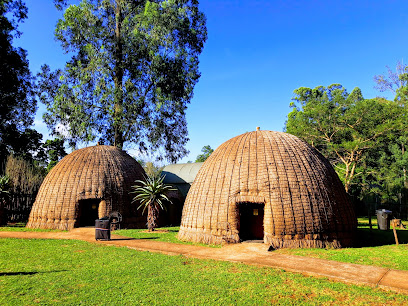
Summerfield Botanical Garden & Exclusive Resort
Experience the serene beauty of Summerfield Botanical Garden & Exclusive Resort, where luxury meets nature in the heart of Eswatini.

Happy Valley Hotel & Casino
Discover the perfect blend of luxury and entertainment at Happy Valley Hotel & Casino in Eswatini, where comfort meets excitement.

Mantenga Cultural Village
Immerse yourself in the vibrant traditions of Eswatini at Mantenga Cultural Village, where culture and nature meet beautifully.
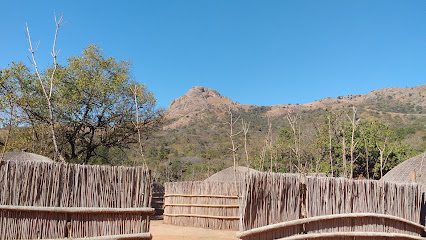
Foresters Arms
Experience the warmth of Eswatini at Foresters Arms, where comfort meets hospitality in the heart of Mhlambanyatsi.
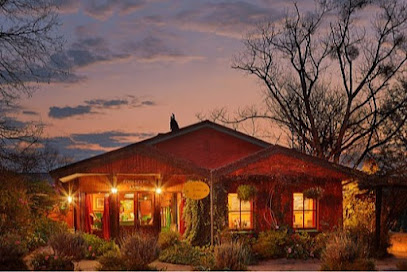
The Gables Shopping Center
Experience the vibrant shopping, dining, and cultural scene at The Gables Shopping Center in Ezulwini, Eswatini, where local meets global.
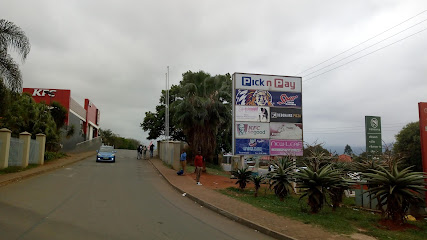
Ngwenya Glass - Eswatini
Discover the artistry of glass blowing and shop for unique handcrafted souvenirs at Ngwenya Glass, a cultural gem in Eswatini.
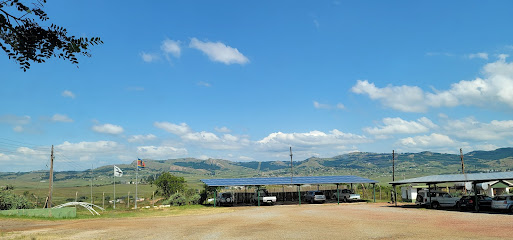
Piggs Peak Hotel
Experience the serene beauty of Piggs Peak Hotel in Eswatini, a perfect blend of comfort and nature for every traveler.

TransMagnific
Explore Eswatini effortlessly with TransMagnific, offering comprehensive travel services from airport shuttles to car rentals and guided tours.
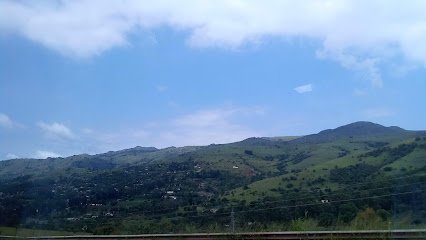
Hlane Royal National Park
Discover the wild wonders of Hlane Royal National Park in Eswatini, a haven for wildlife enthusiasts and nature lovers seeking adventure.
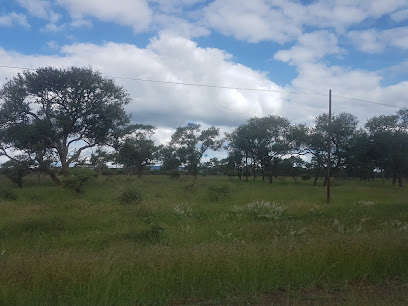
Mlawula Nature Reserve
Explore the breathtaking landscapes and rich biodiversity of Mlawula Nature Reserve in Eswatini, a perfect getaway for nature lovers and adventure seekers.
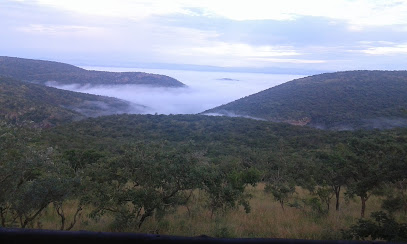
Sibebe Resort
Discover the serene beauty and cultural richness of Eswatini at Sibebe Resort, your perfect getaway in Mbabane.
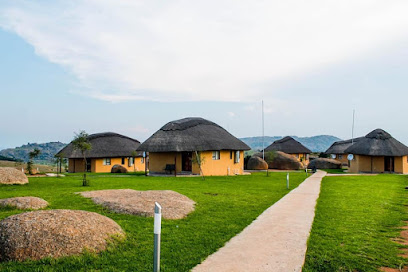
Malolotja National Park
Explore the stunning landscapes, rich biodiversity, and thrilling adventures at Malolotja National Park, Eswatini's premier nature preserve.
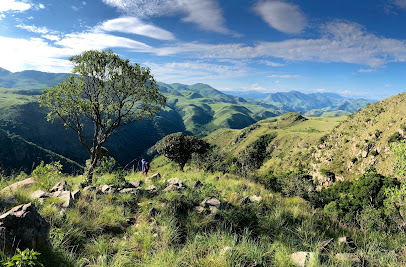
Lidwala Lodge
Discover the tranquil beauty and cultural richness at Lidwala Lodge, your ideal retreat in Eswatini's Ezulwini Valley.
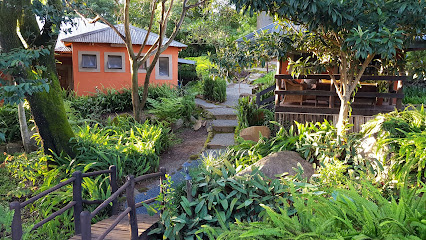
Bulembu Lodge
Experience the tranquility of Bulembu Lodge, where breathtaking views, local culture, and comforting accommodations come together in Eswatini's scenic hills.

Essential places to dine
Mantenga Lodge
Experience relaxation and cultural richness at Mantenga Lodge in Eswatini – where comfort meets adventure amidst stunning landscapes.
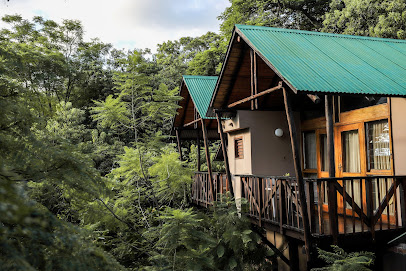
Simunye Club
Discover leisure at Simunye Club: Eswatini's premier country club featuring golf, dining, and breathtaking views.
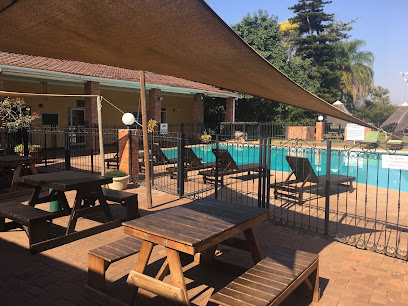
Ramblas Restaurant Mbabane
Experience authentic eSwatini cuisine at Ramblas Restaurant Mbabane - where every dish tells a story.
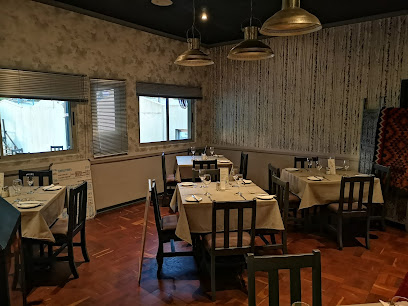
The Velvet Monkey
Experience authentic Italian cuisine at The Velvet Monkey in Lobamba - where every meal is a celebration of flavor and culture.
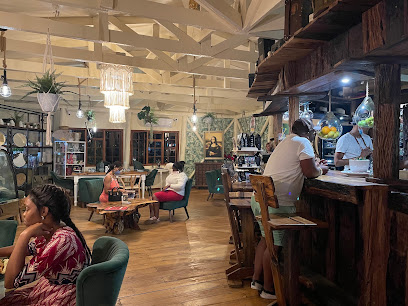
Pizza Vesuvio
Experience authentic Italian cuisine at Pizza Vesuvio in Lobamba - home to the best pizza in Eswatini!
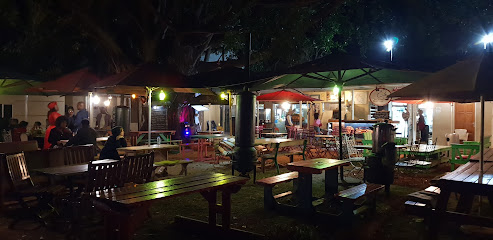
Gil Vicente Restaurant
Discover Gil Vicente Restaurant: A Culinary Delight in Manzini Offering Authentic Swazi Flavors and International Cuisine.
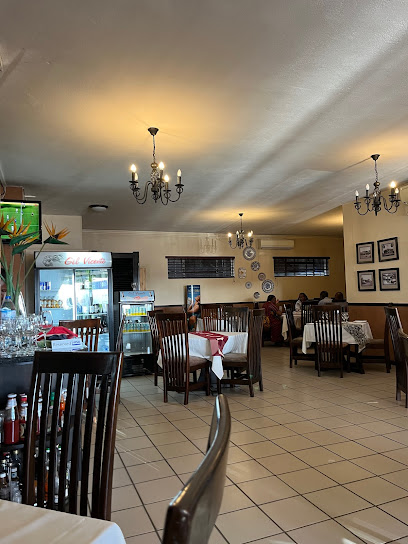
Nando's Matsapha
Discover the vibrant flavors of South African cuisine at Nando's Matsapha with delicious peri-peri chicken and welcoming ambiance.

Mhlume Country Club & Lodge
Discover serenity at Mhlume Country Club & Lodge - A perfect blend of leisure and adventure in beautiful Eswatini.

Luxy Garden Resturant
Experience the best of authentic Chinese cuisine at Luxy Garden Restaurant in Lobamba, Eswatini - where every dish tells a story.
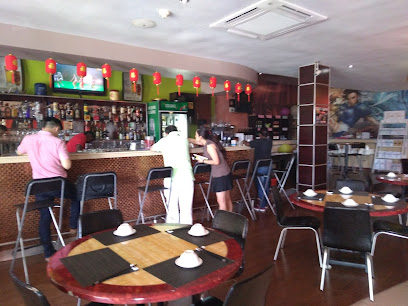
Nando's Ezulwini
Experience the vibrant flavors of Portuguese cuisine at Nando's Ezulwini, where every bite tells a story.
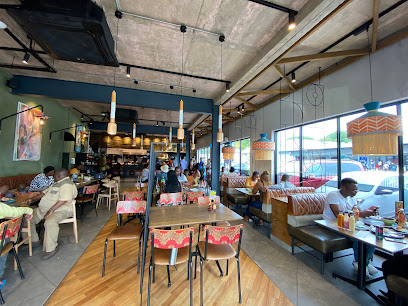
268 JAMS
Discover the vibrant flavors of Eswatini at 268 JAMS - where local cuisine meets modern dining in Mbabane.
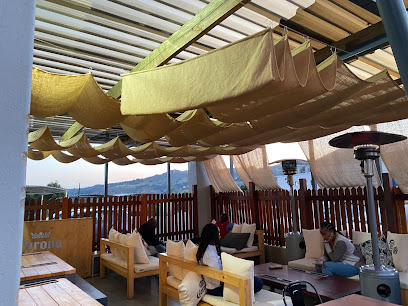
Goggas Nest Bnb and Restaurant
Discover Goggas Nest Bnb & Restaurant: A perfect blend of culinary delights and cozy accommodations in Matsapha, Eswatini.
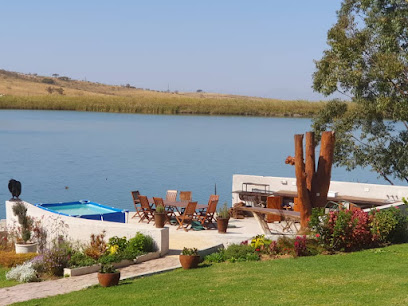
Yoon’s Kitchen
Discover authentic Swazi flavors at Yoon's Kitchen in Mbabane—where tradition meets modern culinary excellence.
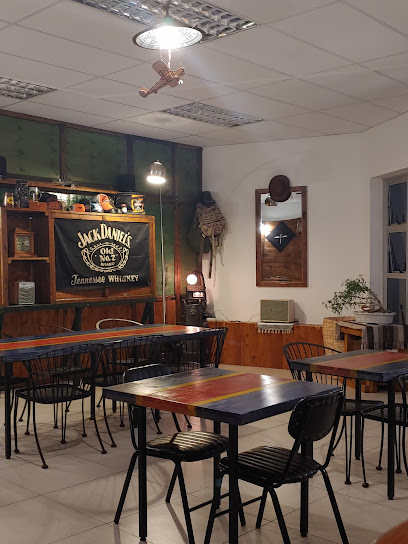
Vickery's Café
Discover delicious local cuisine at Vickery's Café in Malkerns—where every meal tells a story.
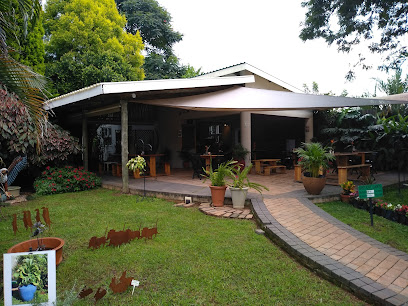
KFC Eswatini Ngwenya
Savor the iconic flavors of KFC at Eswatini Ngwenya - your go-to spot for fast food delights while traveling!
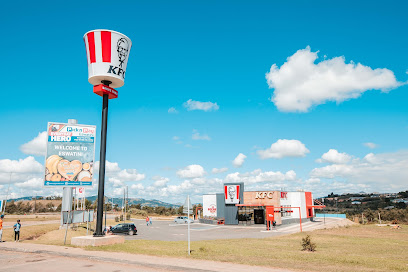
Markets, malls and hidden boutiques
Swazi Candles
Explore the vibrant artistry of Swazi Candles, where every handcrafted piece tells a story of tradition and creativity in Eswatini.
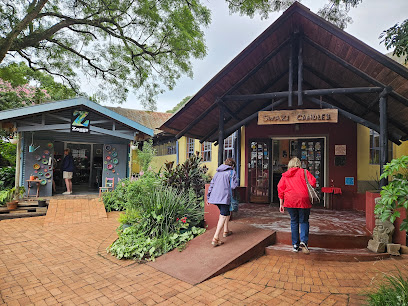
Footgear Bhunu Mall
Discover Footgear Bhunu Mall in Manzini, Eswatini - your one-stop-shop for quality footwear including stylish boots and running shoes.
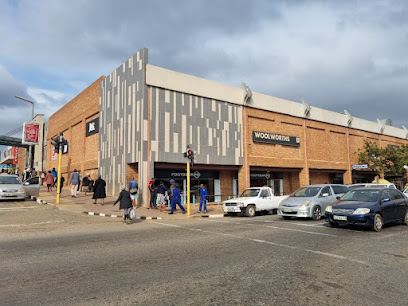
The Gables Shopping Center
Experience the vibrant shopping scene at The Gables Shopping Center in Ezulwini, where local culture meets global brands.
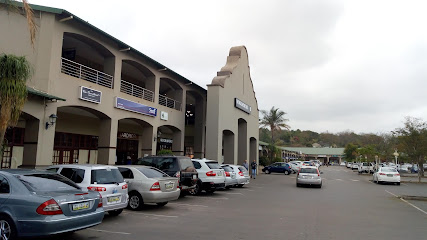
SWAZI PLAZA
Explore Swazi Plaza in Mbabane - a vibrant shopping mall filled with local crafts, international brands, and delicious dining options.
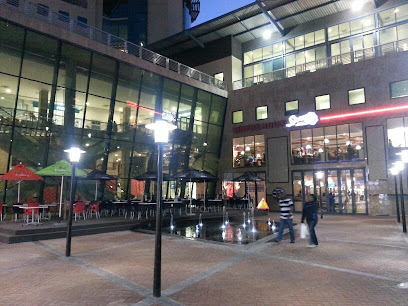
Ngwenya Glass - Eswatini
Explore the captivating artistry of Ngwenya Glass in Eswatini, where tradition meets modern craftsmanship in stunning glass creations.
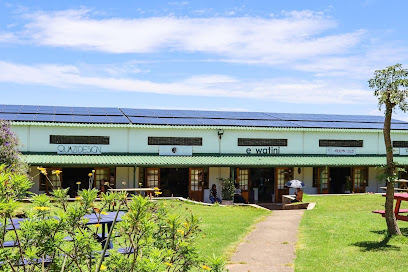
Mantenga Lifestyle & Craft Centre
Discover the heart of Eswatini at Mantenga Lifestyle & Craft Centre, where local craftsmanship meets culinary delights and adventure.
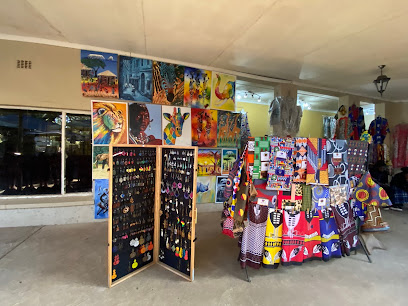
Manzini Mall
Discover the heart of shopping and culture at Manzini Mall, a vibrant destination in Eswatini filled with local crafts, delicious food, and entertainment.

Crown Of A Natural (Obsessories)
Discover unique gifts at Crown Of A Natural in Eswatini, where local artistry meets exceptional shopping experiences.
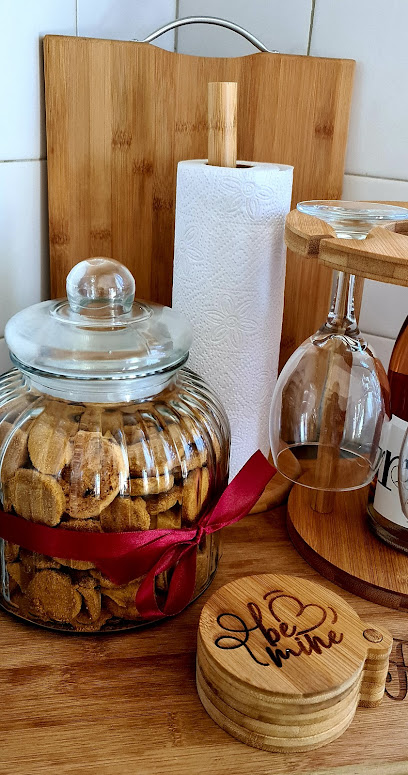
Manzini Lifestyle Center
Explore the Manzini Lifestyle Center, a premier shopping destination in Eswatini with diverse shops, dining options, and vibrant cultural experiences.

Ngwenya Border Post
Discover the Ngwenya Border Post, your gateway to the enchanting landscapes and rich culture of Eswatini, connecting South Africa and a world of adventure.
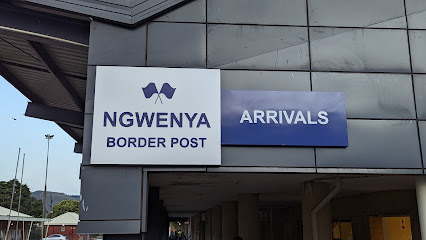
Truworths bhunu mall
Discover contemporary fashion at Truworths Bhunu Mall in Manzini, Eswatini, where style meets affordability for the whole family.

Baobab Batik workshop
Explore the vibrant art of batik at Baobab Batik workshop in Eswatini, where tradition meets creativity in every handcrafted piece.
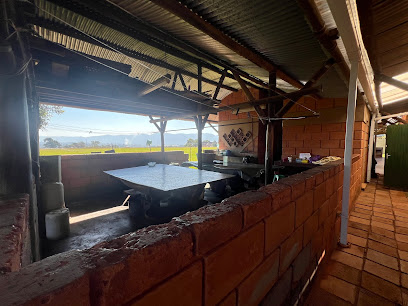
The FIX - The Gables
Explore stylish women's clothing, children's apparel, and trendy accessories at The FIX - The Gables in Lobamba, Eswatini.

Bhunu Mall
Experience the lively shopping and dining at Bhunu Mall in Manzini, Eswatini, where local culture meets modern retail.

Swazi Border Post Matsamo
Experience the warm hospitality of Eswatini at Swazi Border Post Matsamo, your gateway to cultural adventures and stunning landscapes.

Essential bars & hidden hideouts
Foresters Arms
Discover the Victorian elegance of Foresters Arms, a premier bar and restaurant in Eswatini, offering delightful cuisine and warm hospitality.
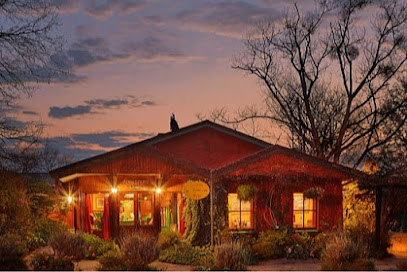
Simunye Club
Discover the luxury of Simunye Club, a premier country club in Eswatini offering golf, exquisite dining, and serene landscapes for an unforgettable getaway.
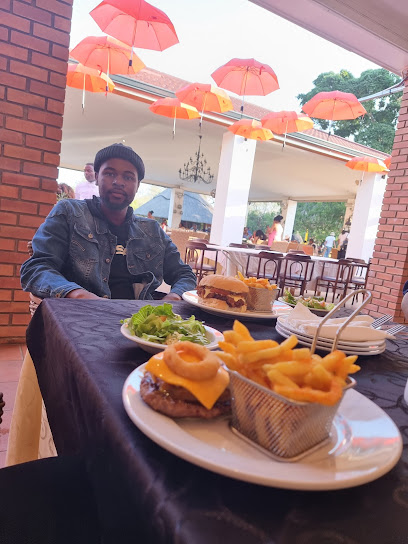
Solanis
Experience the vibrant flavors of Eswatini at Solanis, a premier grill in Mbabane offering fresh, delicious meals in a welcoming atmosphere.
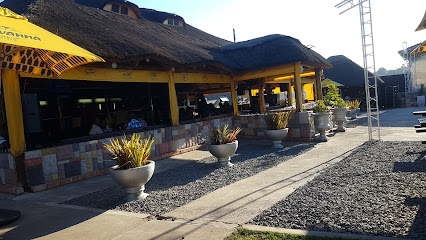
The Velvet Monkey
Experience authentic Italian cuisine in the heart of Lobamba, where flavorful dishes meet warm Swazi hospitality at The Velvet Monkey.
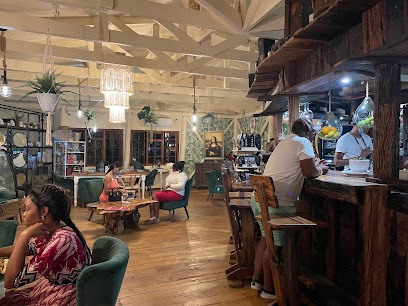
Nando's Manzini
Experience the vibrant flavors of Portuguese-inspired South African cuisine at Nando's Manzini, known for its delicious peri-peri chicken and lively atmosphere.
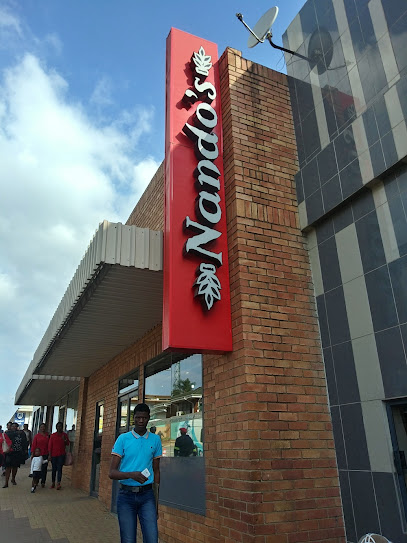
Ngwenya Border Post
Discover the vibrant crossing at Ngwenya Border Post, a gateway connecting eSwatini and South Africa with rich culture and stunning landscapes.
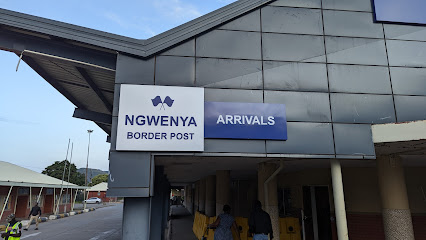
Calabash Restaurant
Discover the culinary delights of Calabash Restaurant in Lobamba, Eswatini, known for its exceptional pork knuckle and warm atmosphere.
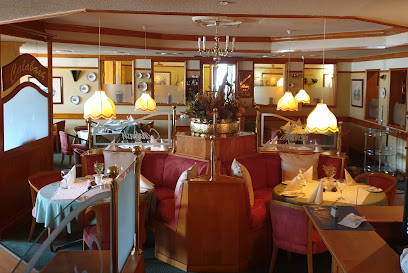
Nando's Ezulwini
Discover the vibrant flavors of South African and Portuguese cuisine at Nando's Ezulwini, where every meal is a celebration of taste.
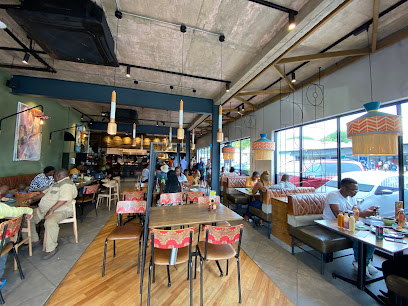
Tandoori Restaurant
Discover the vibrant flavors of India at Tandoori Restaurant in Mbabane, where every meal is a culinary journey through rich spices and tradition.
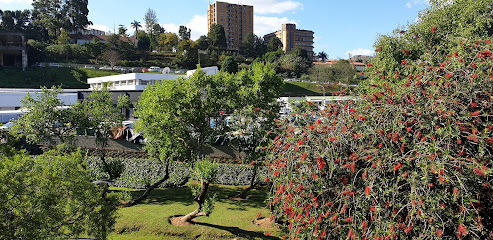
KFC Eswatini Ngwenya
Indulge in delicious fast food at KFC Eswatini Ngwenya, where iconic flavors meet the charm of Eswatini's landscapes.
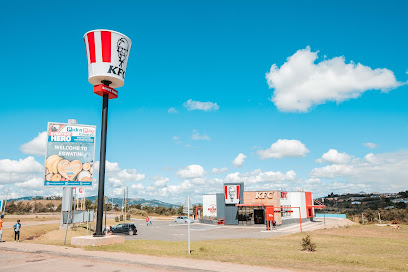
Lismore lodge and restuarant
Discover the charm of Lismore Lodge and Restaurant in Big Bend, Eswatini - where comfort meets local flavors in a serene setting.
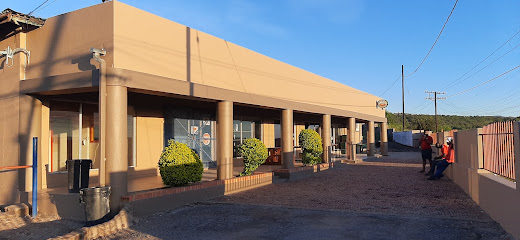
RocoGo Manzini
Experience the best burgers in Manzini at RocoGo, a vibrant spot for delicious meals and friendly service in the heart of Eswatini.
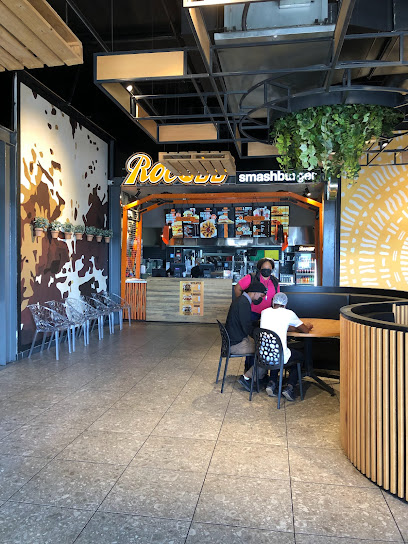
Hippo Haunt
Experience the vibrant flavors of Eswatini at Hippo Haunt, a culinary delight in Manzini offering a unique dining experience.
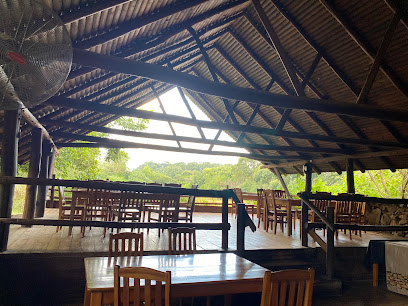
The Plaas Bar and Restaurant
Experience the authentic taste of Eswatini at The Plaas Bar and Restaurant in Nhlangano, where local flavors meet a warm, inviting atmosphere.
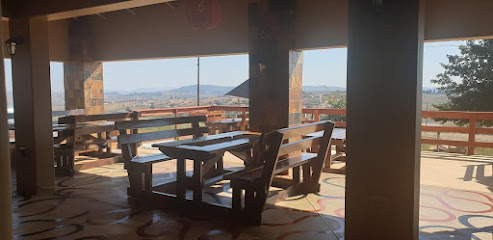
ESbhobheni Tavern
Discover the lively ESbhobheni Tavern in Buffelspruit, a bar where local culture meets refreshing drinks and vibrant conversations.
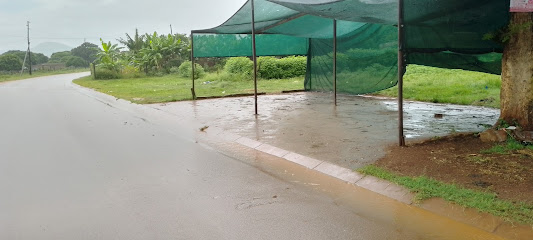
Local Phrases about Tshaneni Border Post
-
- HelloSawubona
[sah-wu-boh-nah] - GoodbyeHamba kahle
[ham-bah kah-leh] - YesYebo
[ye-boh] - NoCha
[chah] - Please/You're welcomeNgiyacela
[in-gi-ya-ceh-lah] - Thank youNgiyabonga
[in-gi-ya-bong-gah] - Excuse me/SorryUxolo
[oo-sho-loh] - How are you?Unjani?
[oon-ya-nee] - Fine. And you?Ngiyaphila. Wena?
[in-gi-ya-pee-lah. way-nah] - Do you speak English?Ukhuluma isiNgisi?
[oo-koo-loo-mah is-een-gi-see] - I don't understandAngazi
[ang-gah-zee]
- HelloSawubona
-
- I'd like to see the menu, pleaseNgicela ukubona iminikelo, ngiyacela
[in-gi-ceh-lah u-koo-boh-nah ee-mee-nee-keh-loh, in-gi-ya-ceh-lah] - I don't eat meatAngiyi kudla inyama
[ang-gi-yee koo-dlah ee-nyah-mah] - Cheers!Oele!
[oh-leh] - I would like to pay, pleaseNgicela ukudlala, ngiyacela
[in-gi-ceh-lah oo-koo-dlah-lah, in-gi-ya-ceh-lah]
- I'd like to see the menu, pleaseNgicela ukubona iminikelo, ngiyacela
-
- Help!Usizo!
[oo-see-zoh] - Go away!Hamba!
[ham-bah] - Call the Police!Biza amaphoyisa!
[bee-zah ah-mah-poh-yee-sah] - Call a doctor!Biza umndeni!
[bee-zah oom-n-deh-nee] - I'm lostNgikhohlwe
[in-gi-kho-shl-weh] - I'm illNgisemuhle
[in-gi-seh-moo-leh]
- Help!Usizo!
-
- I'd like to buy...Ngicela ukuthenga...
[in-gi-ceh-lah oo-koo-ten-gah] - I'm just lookingNgicela ukubuka kuphela
[in-gi-ceh-lah oo-koo-boo-kah koo-peh-lah] - How much is it?Kuyatholakala kahle?
[koo-yah-tho-la-kah-lah kah-leh] - That's too expensiveLokhu kungakabi kahle
[loh-koo koo-nga-kah-bee kah-leh] - Can you lower the price?Ungakwazi ukuthuthukisa isilinganiso?
[oon-gah-kwah-zee oo-koo-too-thoo-kee-sah ee-see-lee-ngah-nee-so]
- I'd like to buy...Ngicela ukuthenga...
-
- What time is it?Sikuphi isikhathi?
[see-koo-pee ee-see-kha-tee] - It's one o'clockKuyatholakala ekuseni
[koo-yah-tho-la-kah-lah eh-koo-seh-nee] - Half past (10)Kuyatholakala ekugcineni
[koo-yah-tho-la-kah-lah eh-koo-gee-nee-neh] - MorningEkuseni
[eh-koo-seh-nee] - AfternoonNgoLwesine
[n-go-lwe-see-neh] - EveningEbusuku
[eh-boo-soo-koo] - YesterdayNgesikhathi yesibili
[n-geh-see-kha-thee ye-see-bee-lee] - TodayNamuhla
[nah-moo-shlah] - TomorrowKusasa
[koo-sa-sah] - 1Kunye
[koo-nyeh] - 2Kubili
[koo-bee-lee] - 3Kuthathu
[koo-tah-thoo] - 4Kune
[koo-neh] - 5Kuhlanu
[koo-hlah-noo] - 6Isithupha
[ee-see-too-pah] - 7Isikhombisa
[ee-see-khom-bee-sah] - 8Isishagalombili
[ee-see-sha-gah-lohm-bee-lee] - 9Isishagalolunye
[ee-see-sha-gah-loh-loo-nyeh] - 10Ishumi
[ee-shoo-mee]
- What time is it?Sikuphi isikhathi?
-
- Where's a/the...?Kuphi i...
[koo-pee ee] - What's the address?Yiyo indawo yezwakala?
[yee-yoh een-dah-woh yeh-zwah-kah-lah] - Can you show me (on the map)?Ungangibonisi (ekhombisa emephu)?
[oon-gah-ngee-boh-nee-see eh-khom-bee-sah eh-meh-poo] - When's the next (bus)?Kuphi i-ntuthuko elandzaku?
[koo-pee ee-ntoo-thoo-koh eh-lahn-dzah-koo] - A ticket (to ....)Itikithi (kusuka ku ....)
[ee-tee-kee-thee (koo-soo-kah koo)]
- Where's a/the...?Kuphi i...
History of Tshaneni Border Post
-
The area around Tshaneni Border Post has been inhabited for centuries, with early settlers from various Nguni-speaking groups. These communities were primarily agrarian, relying on the fertile lands for farming and livestock herding. The region's early history is marked by the migration and settlement of these groups, who were drawn to the area by its rich natural resources and strategic location.
-
In the late 19th and early 20th centuries, the region around Tshaneni came under British colonial influence. The border post itself was established as a strategic point for the administration of the colony. This period saw significant infrastructural development, including roads and administrative buildings, which facilitated trade and movement between Eswatini and its neighboring territories.
-
After Eswatini gained independence from British rule in 1968, Tshaneni Border Post continued to play a crucial role in the nation's development. The border post became a key point for cross-border trade and travel, helping to boost the local economy. Modernization efforts in the late 20th and early 21st centuries saw the introduction of improved facilities and services at the border post, making it a vital gateway for both locals and international travelers.
-
Tshaneni Border Post is not just a point of entry but also a cultural landmark. The area is home to a mix of Swazi traditions and customs, which are evident in the local festivals, ceremonies, and daily life. Visitors to the border post can experience the rich cultural tapestry of Eswatini, from traditional dances to local crafts and cuisine.
-
The border post has had a significant impact on the local economy, providing employment opportunities and fostering trade. The flow of goods and people through Tshaneni has helped to stimulate economic activity in the region, contributing to the overall development of Eswatini. The border post serves as a critical link in the supply chain for various goods, including agricultural products and manufactured goods.
-
Tshaneni Border Post holds strategic importance for Eswatini, both economically and politically. Its location makes it a vital point for monitoring and regulating cross-border movement, ensuring national security. The border post also plays a role in diplomatic relations with neighboring countries, highlighting its significance beyond just a point of entry.
Tshaneni Border Post Essentials
-
Tshaneni Border Post is located in the northeastern part of Eswatini, near the border with South Africa. The nearest major city is Manzini, approximately 90 kilometers away. Travelers can reach Tshaneni by flying into King Mswati III International Airport (SHO) near Manzini. From the airport, you can rent a car or hire a taxi to drive to Tshaneni. The journey by road typically takes around 1.5 to 2 hours. Alternatively, you can take a bus or shuttle service from Manzini or Mbabane to Tshaneni.
-
In Tshaneni, the most common modes of transportation are taxis and minibuses. Taxis are readily available and can be hired for short trips or for the entire day. Minibuses, known locally as 'kombi', operate on fixed routes and are an affordable way to get around. For those looking to explore the area at their own pace, renting a car is a viable option. The roads are generally in good condition, but it is advisable to have a GPS or map for navigation.
-
The official currency in Eswatini is the Swazi Lilangeni (SZL), which is pegged to the South African Rand (ZAR). Both currencies are accepted interchangeably in most places. Credit and debit cards are accepted in major hotels, restaurants, and shops, but it is advisable to carry some cash for smaller establishments and rural areas. ATMs are available in Tshaneni, but it's a good idea to withdraw sufficient cash in Manzini or Mbabane before traveling.
-
Tshaneni is generally a safe destination for tourists. However, as with any travel destination, it's important to take standard precautions. Avoid walking alone at night in unfamiliar areas and keep an eye on your belongings in crowded places. There are no specific high-crime areas targeting tourists in Tshaneni, but always stay vigilant and aware of your surroundings.
-
In case of emergency, dial 999 for police, medical, or fire assistance. The local police station and medical facilities are available in Tshaneni. It is recommended to have travel insurance that covers medical emergencies. For minor health issues, there are pharmacies in the town where you can purchase over-the-counter medications.
-
Fashion: Do dress modestly, especially when visiting religious or cultural sites. Avoid wearing overly revealing clothing. Religion: Do respect local customs and traditions. Always ask for permission before taking photos of people or religious ceremonies. Public Transport: Do be respectful and give up your seat to elderly passengers. Don't eat or drink on public transport. Greetings: Do greet people with a handshake and a friendly smile. It's customary to address elders with respect. Eating & Drinking: Do try local delicacies and accept food offerings graciously. Don't refuse hospitality, as it is considered impolite.
-
To experience Tshaneni like a local, visit the local markets where you can buy fresh produce and traditional Swazi crafts. Engage with locals, as they are often friendly and willing to share stories about the area's history and culture. Don't miss out on visiting the nearby Hlane Royal National Park for a chance to see wildlife like elephants, rhinos, and lions. For a unique experience, attend a traditional Swazi dance performance, which offers insight into the rich cultural heritage of Eswatini.
Trending Landmarks in Tshaneni Border Post
-
Mlilwane Game Sanctuary
-
Summerfield Botanical Garden & Exclusive Resort
-
Happy Valley Hotel & Casino
-
Mantenga Cultural Village
-
Foresters Arms
-
The Gables Shopping Center
-
Ngwenya Glass - Eswatini
-
Piggs Peak Hotel
-
TransMagnific
-
Hlane Royal National Park
-
Mlawula Nature Reserve
-
Sibebe Resort
-
Malolotja National Park
-
Lidwala Lodge
-
Bulembu Lodge
Nearby Cities to Tshaneni Border Post
-
Things To Do in Malkerns
-
Things To Do in Manzini
-
Things To Do in Nelspruit
-
Things To Do in Mhlume
-
Things To Do in Big Bend
-
Things To Do in Matola
-
Things To Do in Maputo
-
Things To Do in Pretoria
-
Things To Do in Johannesburg
-
Things To Do in Polokwane
-
Things To Do in Mokhotlong
-
Things To Do in Butha-Buthe
-
Things To Do in Durban
-
Things To Do in Leribe
-
Things To Do in Thaba-Tseka






